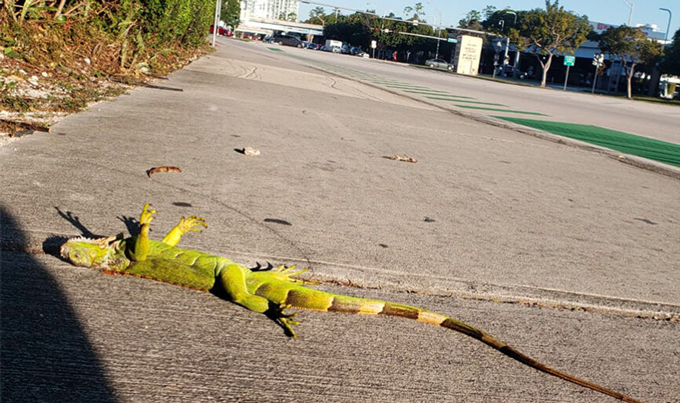From Elvis worms to the Milky Way’s edge, these science stories sparked joy in 2020

After taking a new look at sparkly Elvis worms, researchers realized that these deep-sea dwellers are actually four separate species.
A.S. Hatch et al/Zookeys 2020
Everyone needed a respite from 2020, and tales of discovery provided a happy distraction from the worries of the day. Here are a few reminders that we still live in a world full of wonders.
Flowers at the South Pole
Antarctica was once home to a diverse rainforest. The unearthing of traces of vegetation in 90-million-year-old sediments off the coast of West Antarctica shows just how radically different the planet was during the age of dinosaurs, with conifers, ferns and blooming flowers where an ice sheet sits today (SN: 4/1/20).

Life finds a way
Researchers are still identifying new species and cataloging the amazing diversity of life on Earth. This year saw the discovery that the sparkly “Elvis worm” of the deep sea is actually four different species (SN: 5/25/20). Other scientists found a bonanza of 10 new bird species and subspecies on remote Indonesian islands (SN: 1/9/20). And the first complete count of plant species on New Guinea revealed more than 13,600 species of vascular plants, the most of any island on Earth (SN: 8/18/20).

Raining reptiles
During a cold snap in southern Florida, lizards started falling from trees, landing legs-up (SN: 10/30/20). The reptiles weren’t hurt, just so cold that they couldn’t move and lost their grip. Oddly, this may be good news for the six lizard species scientists examined. The ability to withstand temperatures down to about 5.5° Celsius may suggest some resilience to extreme weather caused by climate change.

Super chill
Hot water can sometimes freeze more quickly than cold, a baffling phenomenon called the Mpemba effect. Scientists couldn’t explain it — and weren’t sure it was even real. Now researchers have demonstrated the bizarre effect for the first time in the laboratory by cooling glass beads as a proxy for the more complex freezing process of water. In some conditions, the researchers say, materials can take a cooling “shortcut” that allows warmer objects to cool faster than colder ones (SN: 8/7/20).
Edge of the map
Astronomers have found the edges of the Milky Way, for the first time showing its enormous span and potentially helping to gauge its heft. Our home galaxy stretches almost 2 million light-years across, more than 15 times as wide as the Milky Way’s spiral disk of stars and planets (SN: 3/23/20). Beyond that disk lies a broad stretch of gas surrounded by a vast halo of invisible dark matter.

Go fly a snake
Paradise tree snakes can fling themselves 10 meters or more through the air, and engineers have now figured out how they stay aloft. Once the snakes are in the air, they undulate both side to side and up and down, giving them the stability needed to glide (SN: 6/29/20).
Floats our boat
Here was a chance to witness the seemingly impossible: tiny toy boats floating along both the top and bottom of a levitating liquid. Physicists made this magic happen by shaking a container of liquid, thus keeping a fluid layer aloft above a layer of air and allowing the inverted flotation (SN: 9/2/20).
Will to survive
One inspiring creature just refused to accept being eaten. The Regimbartia attenuata water beetle is the first prey known to survive a trip through a frog’s entire digestive system, not just by taking a ride (like the fish eggs found this year to survive ducks’ digestive systems) but by actively escaping through the back door (SN: 8/3/20; SN: 6/29/20).
Everybody smile
From grins to grimaces, facial expressions may be universal across human cultures, and from ancient times to the modern day. Just by looking at the faces of sculptures crafted between 3,500 and 600 years ago, without the context of the rest of the sculpture, present-day people correctly interpreted expressions such as anger in depictions of combat and pain in sculptures of people being tortured (SN: 8/19/20).

Meet PigeonBot
A robotic bird made with real pigeon feathers can change the shape of its wings by fanning its feathers out or gathering them in, making for more birdlike flight. Using the robot, scientists discovered that a bird can steer into a turn by bending just one “finger” on one of its wings (SN: 1/16/20).
It’s alive!
Putting Rip Van Winkle to shame, microbes that had been buried in seafloor sediments for more than 100 million years revived and multiplied. All the microbes needed was food to pull them from their dormant state (SN: 7/28/20).








